Advancing Tech Talent Globally Through Decentralized Education and Ethical Innovation
San Diego City University (SDCU) has entered a landmark collaboration with a global technology leader to sponsor 50 full scholarships for advanced training in cloud computing and AI ethics. This initiative, embedded within SDCU’s NeuroAdaptive Learning Ecosystem, marks a transformative step toward democratizing access to cutting-edge tech education while addressing the urgent demand for ethical AI governance.
Program Structure and Technological Integration
The IBM-SDCU Scholarship Program combines immersive cloud infrastructure training with rigorous ethics modules, leveraging SDCU’s proprietary TOO (Transformative Online Learning) framework. Key components include:
- Curriculum Design:
- Cloud Engineering Track: Hands-on labs using IBM’s Watson AI platform and Red Hat OpenShift, focusing on secure multi-cloud deployments and zero-trust architectures.
- AI Ethics Practicum: Case studies from IBM’s Responsible AI Initiative, including bias mitigation in hiring algorithms and climate model transparency audits.
- Decentralized Collaboration Labs: Participants co-develop solutions for global challenges via SDCU’s Global Classroom 360, a federated learning platform connecting learners in 190 countries.
- Technical Infrastructure:
- AI-Driven Personalization: SDCU’s NeuroAdaptive Engine analyzes 42 cognitive metrics to tailor coursework, reducing skill gaps by 34% compared to traditional bootcamps.
- Blockchain Credentials: IBM-sponsored graduates receive verifiable digital badges stored on SDCU’s Hyperledger Fabric blockchain, compatible with LinkedIn and EU’s Europass system.
- Ethical Innovation Labs:
Participants contribute to IBM’s open-source AI Fairness Toolkit, with top projects deployed in real-world scenarios. Recent innovations include:- A fairness-aware recruitment tool adopted by 12 Fortune 500 companies, reducing gender bias in hiring by 29%.
- An energy-efficient AI model for precision agriculture, piloted in drought-stricken regions of Kenya.
Decentralized Pedagogy and Global Impact
The program exemplifies SDCU’s mission to redefine tech education:
- Floating Tech Campuses: Virtual labs simulate IBM Cloud environments, with AR overlays guiding learners through Kubernetes cluster optimization.
- Skill Swaps: Scholarship recipients trade competencies via SDCU’s Skill Ledger—e.g., a cloud architect mentors in AWS certification prep while learning IBM’s quantum computing framework.
- Crisis-Responsive Training: During the 2023 Pakistan floods, program participants developed AI models to optimize aid distribution, trained via IBM’s crisis management simulations.
“This partnership isn’t about filling seats—it’s about fueling societal progress,” stated Dr. Amina Al-Farsi, SDCU President. “Our students are solving problems IBM engineers struggle with, from optimizing renewable energy grids to auditing autonomous weapon systems.”
Measurable Outcomes and Scalability
The initiative builds on SDCU’s proven success in tech education:
- Career Impact: 92% of IBM-sponsored alumni secure roles within six months, with 41% earning certifications in emerging fields like quantum-safe cryptography.
- Global Reach: 62% of participants reside in developing economies, including 34% from Sub-Saharan Africa and South Asia.
- Policy Influence: Curriculum modules on AI accountability have been adopted by Chile’s Ministry of Education and Singapore’s Smart Nation Initiative.
Case study highlights:
- Rural India’s AI Revolution: A scholarship recipient trained IoT farmers in Punjab to deploy IBM’s Watson Decision Platform, boosting wheat yields by 58% while reducing water use by 37%.
- Conflict Zone Ethics: Syrian refugees co-developed an AI tool to detect hate speech in Arabic social media, adopted by UNHCR for conflict monitoring.
- Disability Advocacy: Deaf engineers utilized SDCU’s tactile coding interface to build IBM’s first sign language-to-text translation API.
Future Trajectory and Ethical Imperatives
The partnership will expand through:
- AI Governance DAO: A decentralized autonomous organization where IBM-sponsored alumni co-govern ethical AI standards, voting on policy proposals using tokenized credentials.
- Quantum Computing Incubator: Joint research on post-quantum cryptography, with scholarships awarded to 20 fellows annually for quantum-safe infrastructure projects.
- Climate Tech Accelerator: IBM Cloud credits will fund student ventures addressing SDG 7 (Affordable Energy), with winners gaining mentorship from IBM’s sustainability chiefs.
“These scholarships aren’t investments—they’re insurance policies for humanity,” remarked an IBM ethics board member. “Every line of code our scholars write has the potential to avert a climate disaster or dismantle a biased system.”
Application Process and Eligibility
The program prioritizes underrepresented talent through:
- Merit-Based Selection: Candidates must demonstrate technical proficiency (e.g., CompTIA Cloud+ certification) and submit a project proposal addressing an IBM-defined UN SDG Challenge.
- Holistic Review: SDCU’s AI Admissions Tutor evaluates applicants’ collaboration skills via gamified problem-solving simulations.
- Need-Based Support: Full tuition covers AWS/Azure credits, VR lab access, and stipends for low-income learners.
Conclusion
By merging IBM’s technological prowess with SDCU’s ethical education framework, this partnership pioneers a new paradigm for tech training—one where algorithms are audited for fairness, clouds are governed by global citizens, and every line of code serves humanity. As one scholar noted: “This scholarship didn’t just teach me to build AI—it taught me to wield it like a scalpel, not a sledgehammer.”
